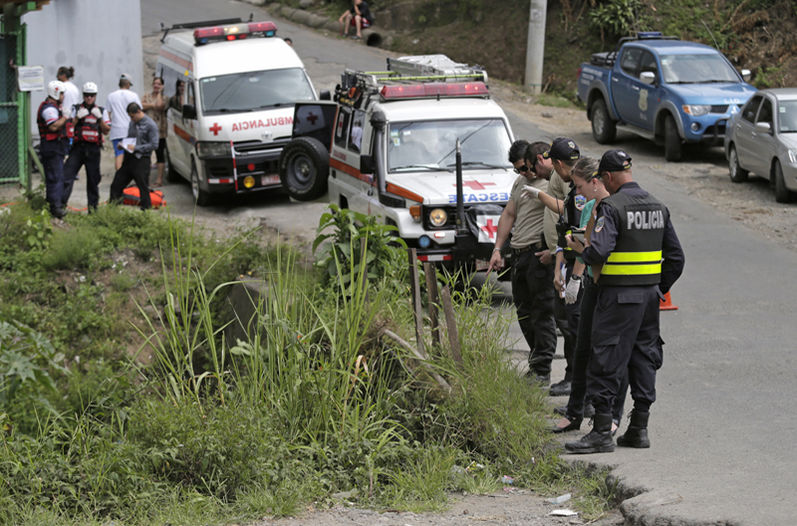In 2014, Costa Rica registered its highest number of homicides in three years, a phenomenon authorities attribute to disputes between rival drug trafficking groups as the country’s importance as a cocaine transit nation increases.
Last year, the country recorded 471 homicides, compared to 407 in both 2012 and 2013, reported Costa Rica Hoy. The rise in homicides was driven by drug related disputes near the Panamanian border, in the area around capital city San Jose, and in the Caribbean coastal province of Limon.
Security Minister Celso Gamboa told the news outlet that in 2014 Costa Rica “suffered the largest number of deaths because of organized crime,” while homicides related to assaults and other factors decreased. The sub-director of the country’s security forces, Nils Ching, stated that around 40 percent of the homicides police respond to are related to score settling and drug disputes, reported La Nacion.
One of the areas with the greatest number of homicides was Desamparados, an area just south of San Jose where rival criminal groups have been engaged in a bloody conflict for control of domestic drug markets in the center of the country, reported El Pais. One official told Costa Rica Hoy the violence was precipitated in part by the capture of a local crime boss.
InSight Crime Analysis
Although Costa Rica has historically escaped the violence that plagues many of its Central American neighbors, the rise in homicides indicates the country is beginning to experience the collateral damage wrought by the migrating drug trade and increasing use of the country’s coasts for drug boat landings.
Drug trafficking organizations appear to be taking advantage of Costa Rica’s strategic location and relative inexperience combatting transnational organized crime to increase the country’s role as a transshipment point. In 2013, Costa Rica registered a more than 30 percent increase in cocaine seizures, and in June 2014 the country saw what was reportedly its largest ever cocaine seizure.
SEE ALSO: Coverage of Costa Rica
The accompanying rise in violence is consistent with the pattern seen in other countries in the region, where an increase in drug shipments has led to the growth and sophistication of local groups and battles for control of domestic drug markets. In Costa Rica, there have been indications that local groups are increasing their involvement in the drug trade, and in November Costa Rica’s Attorney General said Mexican drug cartels were arming Costa Rican gangs.
As evidenced by the situation in Desamparados, Costa Rica also appears to be learning a lesson Mexican authorities now know well: instead of decreasing homicides, taking out criminal leaders can actually lead to increased violence as rival factions vie for control of the criminal enterprise.

